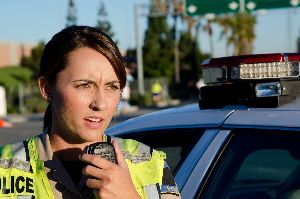Is Riding a Bike While Under the Influence a DUI Offense?

Many people falsely believe they can only get arrested for a DUI while operating a motor vehicle. However, some states' definitions of a vehicle can also include a motorless bicycle. Use this guide to learn about possible consequences for biking under the influence and how an accident injury lawyer can help you fight the charges.
What Is Cycling Under the Influence?
When drunk or on drugs, a cyclist could disregard traffic laws and get into an accident with another cyclist, pedestrian, or motorist. Since cyclists have the capacity to cause harm through their behavior, and bicycles are designed to transport a person or property along the road, Pennsylvania considers bicycles to be vehicles under their state code.
Cycling under the influence means operating, riding, or having physical control of a bicycle while under the influence of alcohol, illicit drugs, or medications that cause impairment. A blood alcohol concentration of .08 percent or more is considered over the legal limit.
What Are Potential Penalties for the Offense?
A person who operated a bicycle while under the influence is subjected to the same types of penalties they'd face for driving a car while drunk or on drugs. In Pennsylvania, for example, cyclists are also obligated to adhere to the state's implied consent laws.

If a cyclist is pulled over by a police officer, they can be arrested for refusing chemical testing. After the arrest, they will also be asked to take a chemical test. A refusal could result in a 12- to 18-month suspension of driving privileges. The consequences are more severe for repeat DUI offenders and could include fines and jail time.
What Are Common Defense Strategies Lawyers Use?
An accident injury lawyer can provide counsel, as they are familiar with how DUI laws apply to a cyclist's case. They might argue that the chemical test was not performed correctly or the results were not calculated properly, which would bring into question whether the cyclist was actually over the legal limit for intoxication.
A defense lawyer could also question the validity of the officer's observations of the defendant's behavior at the time of the arrest. Witnesses to the police stop could provide testimony to refute the officer's claims. An attorney could also argue that the officer had no probable cause for the traffic stop, and therefore the arrest was unlawful.
If you are facing a conviction for cycling while under the influence in Pennsylvania, contact Bernard M. Tully Attorney at Law. With over 30 years of experience, the Pittsburgh-based accident injury lawyer will examine the details of your arrest to determine whether the charges can be thrown out or plea-bargained down for less severe penalties. Visit the Pittsburg law firm online to learn why you should trust the counselor to represent you in court and call (412) 281-8700 for a consultation.
About the Business
Have a question? Ask the experts!
Send your question

